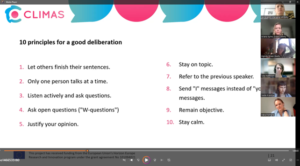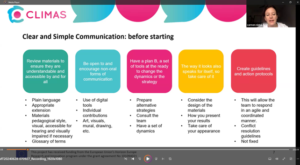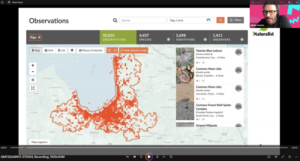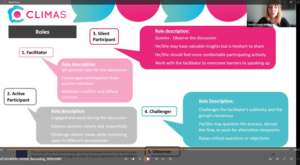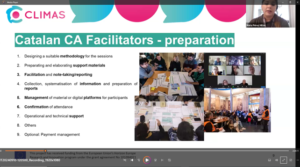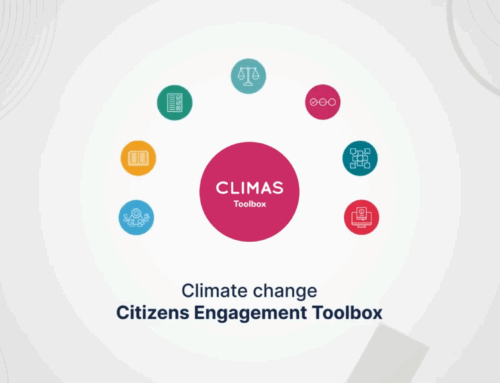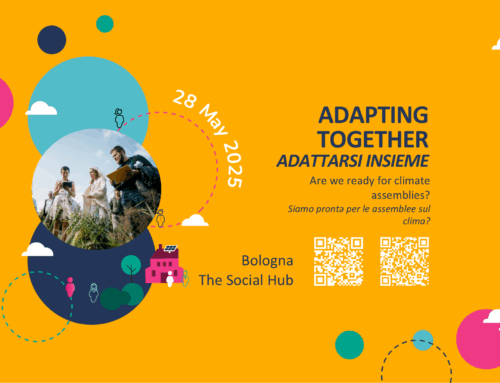Context
While most assemblies have traditionally been organised to address climate change mitigation policies, CLIMAS aims to apply the CA model to climate change adaptation policies and strategies by offering an innovative problem-oriented climate adaptation toolbox, which is co-designed together with stakeholders with a value-based approach, design thinking methods and citizen science mechanisms (for more information: https://www.climas-project.eu/). In this context, Riga Climate Assembly uses CLIMAS tools to support the greening plans for the city of Riga, addressing, in particular: heat island reduction, prevention of rainwater flooding, biodiversity in green areas and effective communication and community engagement. Assembly sessions are scheduled from September 21 to November 23 2024, in 5 sessions held on Saturdays. The course has been a collaborative effort from various CLIMAS partners, namely: cambiaMO, Green Liberty, ifok, deliberativa, University of the Aegean, Generalitat de Catalunya and Eurecat. It has been delivered online for maximum accessibility and has run from June to September 2024. Participants have been guided through a total of 15 hours of content, divided into 5 modules (3 hours per module), offering a comprehensive exploration of inclusive facilitation strategies. The training has been targeted at experienced facilitators who have worked in shared spaces or group dynamics, particularly in climate assemblies or other citizen engagement initiatives.Course details
The training has followed the CLIMAS facilitation guidelines (part of the CLIMAS project deliverable D3.2 Methodological guidelines for the set-up and facilitation of Climate Assemblies), equipping facilitators with practical tools and techniques to lead inclusive, respectful, and productive climate assembly sessions. The course has combined a variety of teaching methods to ensure an engaging and practical learning experience, including background presentations, simulations and role-play activities, supporting reading materials and Q&A sessions. The course has covered the following 5 modules:- Module 1: Fundamentals of Inclusive Climate Assemblies
- Module 2: Development of Inclusive Facilitating Skills
- Module 3: Inclusive Communication
- Module 4: Session Dynamics and Adaptability
- Module 5: Monitoring and Follow-up – Citizen Science in Climate Assemblies

Conclusions and next steps
Through this course, facilitators have gained the skills to ensure balanced participation, manage group dynamics, and foster environments where all participants feel respected, heard, and empowered. They have learned how to engage diverse groups effectively, using methods tailored to the needs of all participants and including CLIMAS tools such as Citizen Science. The CLIMAS Training Module for Inclusive Facilitation has offered facilitators the tools they need to lead effective and inclusive Climate Assemblies. By mastering these techniques, facilitators can ensure that all participants, regardless of their background or abilities, have the opportunity to contribute meaningfully to the critical discussions shaping our response to climate change. Through this course, we have aimed to build a community of facilitators committed to fostering inclusivity and collaboration in climate decision-making!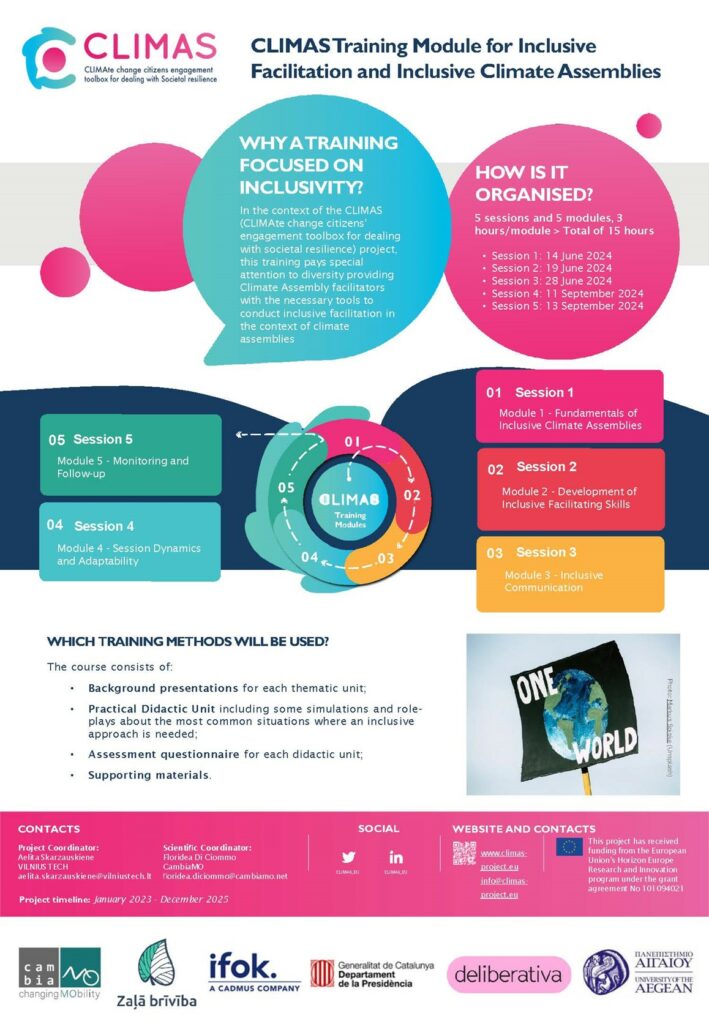
Authors: María Alonso Raposo and Floridea di Ciommo, cambiaMO The CLIMAS Project has received funding from European Union’s Horizon Europe under Grant Agreement N° 101094021. Follow CLIMAS on LinkedIn, Instagram and X, or subscribe to the newsletter to stay updated with the latest activities!

